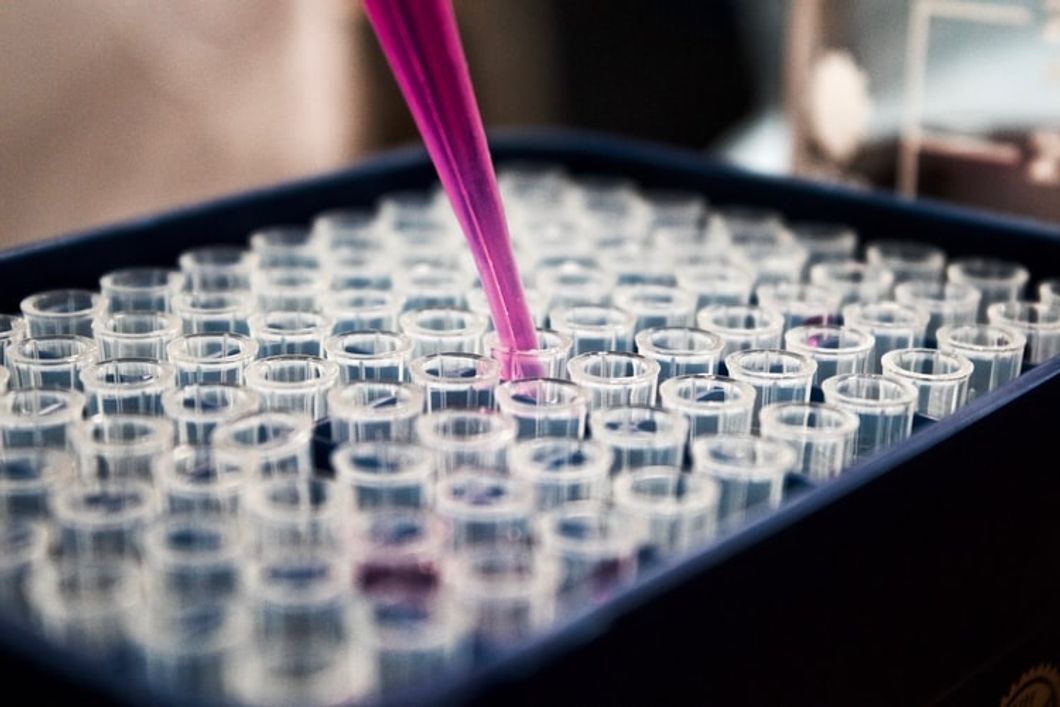"It is what it is," said Dr. Anthony Fauci in an interview with CNN early this April. His words ring with the solemn truth that the coronavirus pandemic, without the proper actions being taken to fight it, will continue to ravage the lives of people around the world. With major events being cancelled, stay at home orders being enforced, and the US stock market nearing a major crash, finding the strength and willpower to fight the coronavirus seems impossible. But some have maintained their hope.
Nestled in the small city of Bethesda, Maryland, the National Institute of Health's research lab is still open for business. The facility is filled with researchers and highly-accredited doctors tirelessly working towards a treatment for the coronavirus. There is no question that the NIH's research lab is taking the right steps to stop the spread of COVID-19, but finding an accessible cure for the virus is an extremely complex task, one that Kizzmekia Corbett is willing to take on.
The coronavirus is named for its shape; the virus looks like it is encircled by a crown, or "corona" in Latin. This so-called crown acts as a protective barrier for the virus itself, and can change its structure in order to enter different organisms, like humans and animals, and begin to duplicate. But as the virus has transferred from organism to organism over time, it has also evolved in its resistance to protective bacteria and any barriers that could prevent it from multiplying. An example of a mutation is a spike, or a glycoprotein cleavage-site, that protects the virus from any bacteria inside an organism that fights against it.
Currently, there are four different strands of the coronavirus, all of which have occurred from mutations. There are two alpha strands, and two beta strands. These versions of the virus affect humans in particular, and depending on which strand a person is infected with, they can experience serious, and sometimes fatal, symptoms. For those that are immuno-compromised, they are especially susceptible to the stronger and more deadly strands of the virus. With multiple strands of the virus developing, this means that finding a cure is increasingly difficult.
The team at NIH's research lab, under the direction of Dr. Kizzmekia Corbett, has produced ground-breaking research that may lead to a cure for COVID-19. Using side-by-side testing of the SARS virus and strands of COVID-19, the NIH research team has discovered distinct similarities and differences between the two viruses which have created the possibility for a cure.
After visiting the NIH's research lab in March and speaking with Dr. Corbett, President Trump granted her research team $8 billion in research funds. Following this grant, Dr. Corbett and her team were able to launch the first clinical trials of a possible vaccine for COVID-19.
Kizzmekia Corbett graduated with her bachelor's from University of Maryland, and attended medical school at the University of North Carolina at Chapel Hill. She is a viral immunologist and microbiologist, and specializes in the study of coronaviruses. Since earning her bachelor's degree in 2006, Corbett has been researching viral pathogens and vaccines. In 2014, Corbett became a research fellow at the NIH based in Seattle.
But Corbett is not taking her opportunities for granted, and she is using her voice to bring attention to issues that mass media is failing to address.
In a Twitter post about a Bloomberg article, Corbett tweeted "I tweet for the people who will die when doctors has to choose who gets the last ventilator and ultimately...who lives. The poor. And, while the article doesn't explicitly say it...the black."
Corbett also responded to Dr. Jerome Adams, a lead surgeon, who stated that black Americans needed to reduce their use of cigarettes and their alcohol intake to keep themselves safe. She remarked that Adams was only trying to place blame, not hold people accountable.
At only 34 years old, Corbett is leading a research team that is on their way to potentially curing one of the worst wide-spread pandemics in history. She is also the only black woman on a leading COVID-19 research project. Not only that, Corbett has a down-to-Earth sense of humor, saying that if she were to ever receive a Nobel prize, she would invite Young Jeezy and DaBaby to celebrate with her.
Corbett, when asked about her dedication to her research, said "At some point, you have to decide how much you care. You understand that your work will have to be mighty so that it can do your speaking."

















